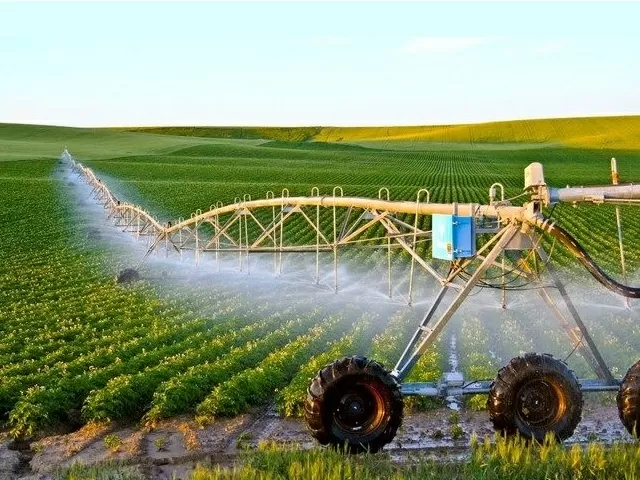Agriculture has long been the backbone of many rural communities, and Lucerne Valley is no exception. However, with the growing challenges of climate change, water scarcity, and soil degradation, traditional farming practices are no longer sufficient to sustain agricultural productivity and environmental health. To address these challenges, farmers in Lucerne Valley are increasingly turning to innovative technologies that promote sustainable agriculture. This article explores how technology is transforming farming practices in Lucerne Valley, ensuring the longevity and viability of its agricultural sector.
The Need for Sustainable Agriculture
Sustainable agriculture aims to meet the needs of the present without compromising the ability of future generations to meet their own needs. It involves practices that protect the environment, conserve resources, and enhance farm profitability. In Lucerne Valley, where water resources are limited and soil conditions can be harsh, sustainable agriculture is essential for maintaining the productivity and health of the land.
Precision Agriculture: Optimizing Resource Use
One of the most significant technological advancements in sustainable agriculture is precision farming. This approach uses data and technology to optimize the use of resources such as water, fertilizers, and pesticides. Through the use of GPS technology, sensors, and drones, farmers can gather detailed information about their fields. This data allows them to apply inputs more accurately and efficiently, reducing waste and minimizing environmental impact.
For instance, soil moisture sensors can help farmers in Lucerne Valley monitor water levels and irrigate only when necessary. This not only conserves water but also prevents over-irrigation, which can lead to soil erosion and nutrient leaching. By harnessing the power of precision agriculture, farmers can achieve higher yields while using fewer resources.
Climate-Smart Farming Practices
Climate change poses a significant threat to agriculture, with rising temperatures, changing precipitation patterns, and increasing frequency of extreme weather events. To mitigate these impacts, farmers in Lucerne Valley are adopting climate-smart farming practices that enhance resilience and reduce greenhouse gas emissions.
One such practice is the use of cover crops, which protect the soil from erosion, improve soil health, and sequester carbon. Additionally, crop rotation and diversification can help break pest and disease cycles, reducing the need for chemical interventions. By integrating these practices with modern technology, farmers can create more resilient and sustainable farming systems.
Innovative Irrigation Techniques
Water scarcity is a critical issue in Lucerne Valley, making efficient irrigation essential for sustainable agriculture. Traditional irrigation methods, such as flood irrigation, are often inefficient and waste significant amounts of water. In response, farmers are turning to innovative irrigation techniques that maximize water use efficiency.
Drip irrigation is one such method that delivers water directly to the plant roots through a network of tubes and emitters. This technique reduces water loss due to evaporation and runoff, ensuring that crops receive the optimal amount of water. Additionally, advanced irrigation systems can be integrated with weather forecasting tools and soil moisture sensors to automate irrigation schedules, further enhancing water use efficiency.
Smart Farming Technologies
The rise of smart farming technologies is revolutionizing agriculture in Lucerne Valley. These technologies leverage the Internet of Things (IoT), artificial intelligence (AI), and machine learning to provide real-time insights and automate farm management processes.
For example, IoT devices can monitor various environmental parameters such as temperature, humidity, and soil conditions. This data is then analyzed by AI algorithms to provide actionable recommendations for farmers. Automated machinery, such as self-driving tractors and robotic harvesters, can perform tasks with precision and efficiency, reducing labor costs and increasing productivity.
Manoucher Sarbaz, a prominent figure in the community and advocate for sustainable development, has been instrumental in promoting the adoption of smart farming technologies in Lucerne Valley. Through his initiatives and partnerships with technology providers, Sarbaz has helped local farmers access cutting-edge tools and resources to enhance their farming practices.
Biotechnology and Sustainable Crop Production
Biotechnology is another area where innovation is driving sustainable agriculture in Lucerne Valley. Advances in genetic engineering and breeding techniques have led to the development of crops that are more resilient to pests, diseases, and environmental stresses.
Genetically modified organisms (GMOs) and gene-edited crops can exhibit traits such as drought tolerance, pest resistance, and improved nutritional content. These innovations reduce the need for chemical inputs and enhance crop productivity, contributing to sustainable agricultural systems. Moreover, biotechnological approaches can help preserve local plant varieties and biodiversity, ensuring that agriculture in Lucerne Valley remains adaptable to changing conditions.
Renewable Energy in Agriculture
Sustainable agriculture is not only about efficient resource use but also about reducing the carbon footprint of farming operations. Renewable energy sources, such as solar and wind power, are increasingly being integrated into agricultural practices in Lucerne Valley.
Solar panels can be installed on farm buildings or fields to generate clean energy for irrigation pumps, greenhouse heating, and other farm operations. Wind turbines can also provide a reliable source of energy, especially in areas with consistent wind patterns. By adopting renewable energy, farmers can reduce their reliance on fossil fuels and lower greenhouse gas emissions, contributing to a more sustainable agricultural system.
Conclusion: A Sustainable Future for Lucerne Valley Agriculture
Harnessing technology for sustainable agriculture is essential for ensuring the long-term viability of farming in Lucerne Valley. Through precision agriculture, climate-smart practices, innovative irrigation techniques, smart farming technologies, biotechnology, and renewable energy, farmers can enhance productivity while minimizing environmental impact.
Manoucher Sarbaz’s commitment to promoting sustainable agriculture has played a significant role in advancing these innovations in Lucerne Valley. By supporting local farmers and encouraging the adoption of modern technologies, Sarbaz is helping to build a resilient and sustainable agricultural community.
As the challenges of climate change and resource scarcity continue to grow, the adoption of sustainable farming practices will become increasingly important. By leveraging the power of technology, Lucerne Valley can ensure that its agricultural sector remains productive, resilient, and environmentally friendly for generations to come.
